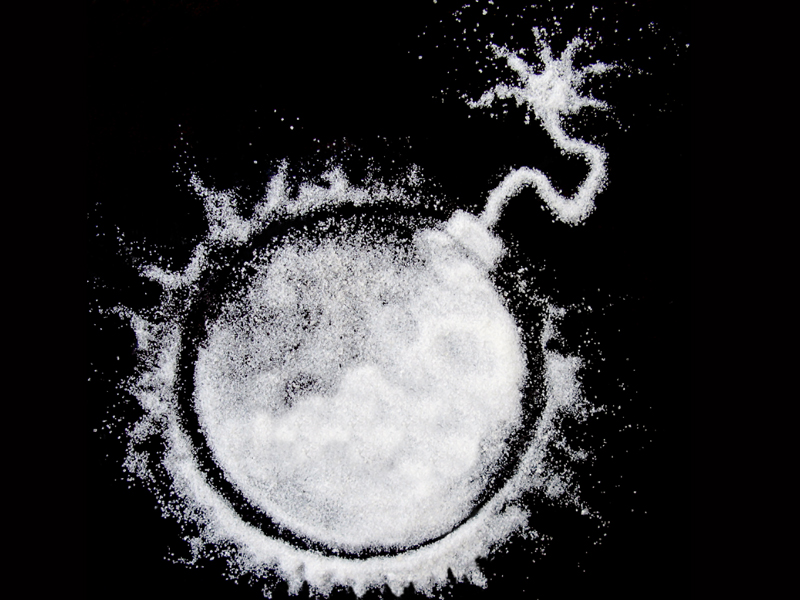Get Easy Health Digest™ in your inbox and don’t miss a thing when you subscribe today. Plus, get the free bonus report, Mother Nature’s Tips, Tricks and Remedies for Cholesterol, Blood Pressure & Blood Sugar as my way of saying welcome to the community!
How sugar blocks the bacteria that keeps you lean and healthy

Sugar. It’s delicious, but it’s dangerous…
Say you eat a glazed donut from a local bakery. It’s packed with sugar. And that sugar stealthily glides through your body and into your gut. Once it’s inside, it attacks one of your body’s biggest assets…
Your beneficial bacteria.
In fact, a new study from Yale University shows that sugar brutally targets a beneficial microbe that’s key to staying lean and healthy.
What sugar’s really doing to your gut microbiome
For a long time, scientists thought that sugar was absorbed into your intestine, but never got into your gut. Now they know that’s not true…
Studies show that not only does sugar enter your gut uninvited, but it totally wrecks the place once it’s there. Case in point? The latest study from researchers at Yale.
They performed a study on mice to get a better idea of how sugar impacts our microbiomes. In the study, they fed mice a diet filled with two types of sugar: sucrose and fructose. Then they looked inside their guts for a beneficial bacteria called Bacteroides thetaiotaomicron.
Bacteroides thetaiotaomicron is abundant in lean and healthy people. It also helps the body process healthy foods like vegetables. But mice who ate more sugar had less Bacteroides thetaiotaomicron. Why?
Because sugar silences a protein that allows Bacteroides thetaiotaomicron to colonize and thrive. If the same is true in humans, sugar is essentially blocking the bacteria that makes us lean and healthy.
Safely satisfying your sweet tooth
So, if sugar is wrecking your microbiome, do you need to give it up?
Related: What happens if you give up sugar for 9 days?
Well, you don’t have to give up sugar altogether. But moderation is a good idea.
That means limiting the number of sweet treats you eat. Rather than digging into a decadent dessert every night, limit yourself to a couple of times per week.
It also means keeping track of sneaky sources of added sugar in your diet. Just because something isn’t a dessert food doesn’t mean it’s sugar-free.
Beverages are the biggest source of sneaky sugars. But cereals, snacks, dressings, and condiments are also bad. Always read labels. You should only get about 100 calories (6 teaspoons) per day of added sugar if you’re a woman and 150 calories (9 teaspoons) per day if you’re a man.
The source of sugar counts too. You might as well get a dose of healthy things like antioxidants, minerals, and nutrients when you get your sugar fix. So, choose natural sweeteners with beneficial properties like molasses, raw honey, and maple syrup to make your sweets slightly less detrimental to your health.
Editor’s note: Did you know that when you take your body from acid to alkaline you can boost your energy, lose weight, soothe digestion, avoid illness and achieve wellness? Click here to discover The Alkaline Secret to Ultimate Vitality and revive your life today!
Sources:
- Sugar targets gut microbe linked to lean and healthy people — Yale University
- Dietary sugar silences a colonization factor in a mammalian gut symbiont — Proceedings of the National Academy of Sciences of the United States of America
- Sugar 101 — American Heart Association
- 3 Tips for Enjoying Sugar in Moderation — Guideposts













